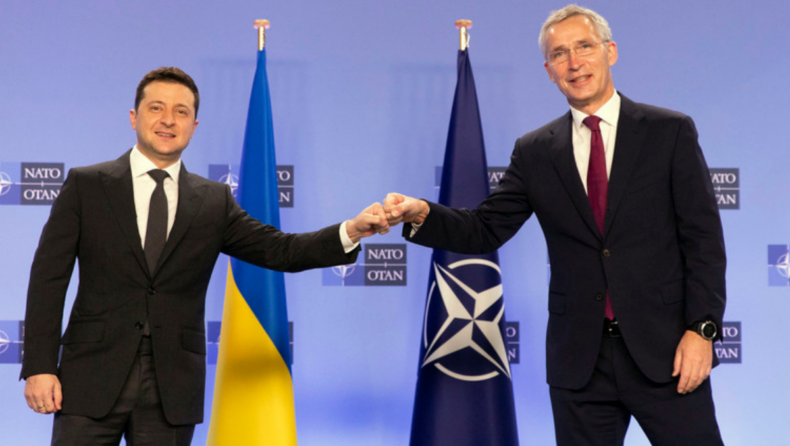The NATO chief Jens Stoltenberg on Thursday stated that Russian forces are not withdrawing but rather repositioning. He further emphasised that despite Russia’s recent statements about scaling down the military operations around Kyiv and in northern Ukraine, Russians are only collecting time to replenish their supplies to reinforce more violence.
Stoltenberg told a media conference in eastern Ukraine that NATO’s intelligence report confirms Russian regrouping tactics. He suggested an increase in offence in Donbas from the Russian side in the coming weeks. At the same time, Mr. Stoltenberg conveyed his concerns about Russia’s persisting pressure on Kyiv and other cities.
A timeline of NATO-Ukraine and its relation
A political and military alliance of a 30-member nation, founded in 1949 in the aftermath of World War II. Its purpose is to guarantee the freedom and security of its members through political and military means.
NATO’s relationship with Ukraine dates back to the early 1990s, which has grown into one of NATO’s most important partnerships. In the aftermath of Crimea’s annexation by Russia in 2014, cooperation in key areas has increased.
In 1991: Ukraine joined the North Atlantic Cooperation Council
In 1994: Ukraine entered into The Partnership for Peace programme of NATO.
These developments initiated a start of dialogue and cooperation between the newly independent Ukraine and NATO.
In 1997: The NATO-Ukraine Commission was established as Ukraine became a signatory to the Distinctive Partnership Charter.
This strengthened the Ukraine-Nato cooperation and took it forward.
Since 2009, the Nato-Ukraine Cooperation has deepened with active Ukraine contributions. Also, NATO initiated reforms under the Annual National Programme (ANP) for Ukraine’s Euro-Atlantic integration.
In July 2016: After the Warsaw Summit, NATO provided a Comprehensive Assistance Package for Ukraine.
This was to support Ukraine’s democratic development. Also, for strengthening Ukraine’s self-defence in case of a standalone crisis event.
In June 2017: The Ukrainian Parliament adopted a legislation that reinstated their NATO membership demand.
The Ukrainian Parliament stated this as a vital objective for strategic foreign and security policy.
In 2019: An amendment was made to Ukraine’s Constitution to get the 2017 Legislation into force.
In September 2020: Ukraine’s new National Security Strategy was approved by President Volodymyr Zelenskyy. This facilitated the development of enhanced partnership with NATO with the ultimate of becoming members of NATO.
Consequences of Ukraine-NATO cooperation
As a direct impact of the enlarged cooperation of Ukraine with NATO, Moscow has only become wary of the US-led alliance. Russia took an offence as NATO edged closer to its borders hemming its abode in Ukraine the erstwhile USSR state. Many experts believe NATO’s eastward expansion is directly linked to the current crisis.
In February 2022: Russia invaded Ukraine.
After Putin announced Russian recognition of Donetsk and Luhansk as independent states, a full-scale war was launched against Ukraine.
This resulted in numerous sanctions from the European nations and the US being targeted at Russia.
In March 2022: The war escalated casting a devastating humanitarian crisis.
Putin demands a curb on NATO’s eastward expansion and a guarantee that Ukraine never is allowed to become a member. The west paid no heed to such demand.
Rather till now, Russia has only invited sanctions and eliminations from world leaders and order respectively. Russian assets amounting to several hundred billion have been seized and it had been cut off from the SWIFT financial banking system. With complete Russian suffocation from the world order and constant shaming and blaming in the UNSC, Moscow is now trying alternatives to keep its economy going.
On contrary Ukraine endures the worst form of crisis. With around three million of its population already taking refuge in different neighbouring countries. For Ukraine this war has only bereaved its blind reliance on the west, becoming a proxy for the US in the ongoing conflict with Russia.
As the Russian and Ukrainian counterparts met in Istanbul for negotiation, Ukraine had put forward a detailed proposal of neutrality.
Russian Deputy Defence Minister Alexander Fomin assured that Moscow will drastically restrict military action in the Kyiv and Chernihiv directions, by a wide margin.
With Ukrainian forces retaking its territory around Kyiv. The Western leaders are still wary of Russian intention and have urged caution.
NATO’s chief asserted caution over Russia’s commitment, given the track record of Russia for its repeated flouting of commitments and defying of rules. This only positions Russia at suspicion against Europe and the US.
Published By: Manan Khurana
Edited By: Subbuthai Padma













